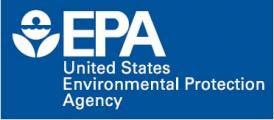Clean hybrid technology that’s already proving its value in two of the world’s most environmentally sensitive ports has received verification from the U.S. Environmental Protection Agency (EPA).
The EPA has verified the XeroPoint Hybrid Tug Retrofit System (XeroPoint) pioneered by Foss Maritime of Seattle, Wash., and Aspin Kemp and Associates (AKA) of Stratford, PEI. The system captured the attention of the maritime industry for its potential economic and environmental savings as a Foss harbor tug was undergoing extensive testing in the ports of Long Beach and Los Angeles.
The rigorous EPA verification process ensures the XeroPoint hybrid system is an effective choice for use on any U.S. harbor tug seeking to meet the nation’s highest environmental standards.
“The hybrid retrofit reduces fuel costs and pollution,” said Paul Stevens, President and CEO of Foss Maritime. “EPA verification of the California test results is what the maritime industry has been looking for. There will be a significant market for XeroPoint retrofits, based on the world’s growing demand for safe, clean technology.”
Jason Aspin, CEO of AKA, said, “The XeroPoint hybrid system represents a clean and simple solution that can be customized for a harbor tug’s power and propulsion systems. Our partnership with Foss Maritime has allowed us to refine the system in one of the world’s most important proving grounds, the ports of Long Beach and Los Angeles.”
The hybrid retrofit Campbell Foss has been working in southern California since 2012, using ultra-low sulfur diesel fuel. The University of California-Riverside, which has been testing the Foss Maritime/AKA system, found:
A fuel savings of roughly 30 percent; A 25 percent particulate matter reduction; A 30 percent reduction in nitrogen oxides produced during combustion; A 30 percent reduction in one of the prime greenhouse gases, carbon dioxide; A 35 percent reduction in carbon monoxide. “The Foss/AKA XeroPoint system is a great example of technology innovation to reduce emissions and improve fuel economy in the marine sector,” said Jim Blubaugh, Deputy Director of the Transportation and Climate Office at the U.S. Environmental Protection Agency. “By reducing diesel emissions at ports, the XeroPoint Hybrid Tugboat Retrofit System can help improve air quality and energy independence in one of our nation’s most important supply chain sectors. We look forward to the broad deployment of this technology in harbor tugboat vessels.”
The ports of Long Beach and Los Angeles and the California Air Resources Board also have partnered with Foss Maritime and AKA on the XeroPoint hybrid retrofit system.
Richard Cameron, Acting Managing Director of Environmental Affairs and Planning at the Port of Long Beach, said, “The commitment of Foss and AKA to hybrid technology has meant cleaner air for communities that surround our local ports. This is a partnership that will pay long-term dividends.”
“The San Pedro Bay port complex and our neighbors have been benefiting from Foss Maritime/AKA hybrid technology since 2009, when the world’s first hybrid tug was home-ported here,” said Chris Cannon, Director of Environmental Management for the Port of Los Angeles. “We’re pleased to have contributed to the development of a hybrid retrofit system that could be used on any harbor tug. It’s game-changing technology.”
“We are working to bring clean air and a healthier environment to the hundreds of thousands of people who live and work in port-adjacent neighborhoods,” said Mary D. Nichols, Chairman of the California Air Resources Board. “California’s support for this new technology will help us meet our goals by improving air quality in our port areas, and is a successful example of a public-private partnership with multiple benefits.”
On the Campbell Foss, the XeroPoint system integrates electrical and mechanical devices onboard to provide optimal modes of operation for power and propulsion. The hybrid system’s energy management system strives to eliminate the unnecessary idling of diesel engines by determining the most efficient configuration of the electrical and mechanical devices on board.
Stevens of Foss said, “Our company is committed to hybrid technology. We believe it is good for the environment – and will be good for our business. Think of all the world’s ports and the thousands of harbor tugs that work them – from LA/Long Beach to Puget Sound, from Rotterdam to Singapore. That’s our potential market. We can bring operators in those markets cleaner air, greater fuel efficiency and reduced maintenance costs.”
The technology is now included on EPA’s Verified Technology List. For more information about verified technologies and the Verified Technology list, please visit: http://epa.gov/cleandiesel/verification/techlist-foss.htm.
ABOUT AKA
Aspin Kemp & Associates (AKA) is a systems integrator delivering innovative products, technically advanced services, integrated systems documentation and world-class training primarily to the marine and offshore industry. See www.aka-group.com for more information.
ABOUT FOSS MARITIME
Founded in 1889, Seattle-based Foss Maritime offers a complete range of maritime services and project management to customers across the Pacific Rim, Europe, South America and around the globe. Foss has one of the largest fleets of tugs and barges on the American West Coast. The company has harbor services and transportation operations in all major U.S. West Coast ports, including the Columbia and Snake River system. Foss operates two shipyards and offers worldwide marine transportation, emphasizing safety, environmental responsibility and high-quality service. See www.foss.com for more information.

